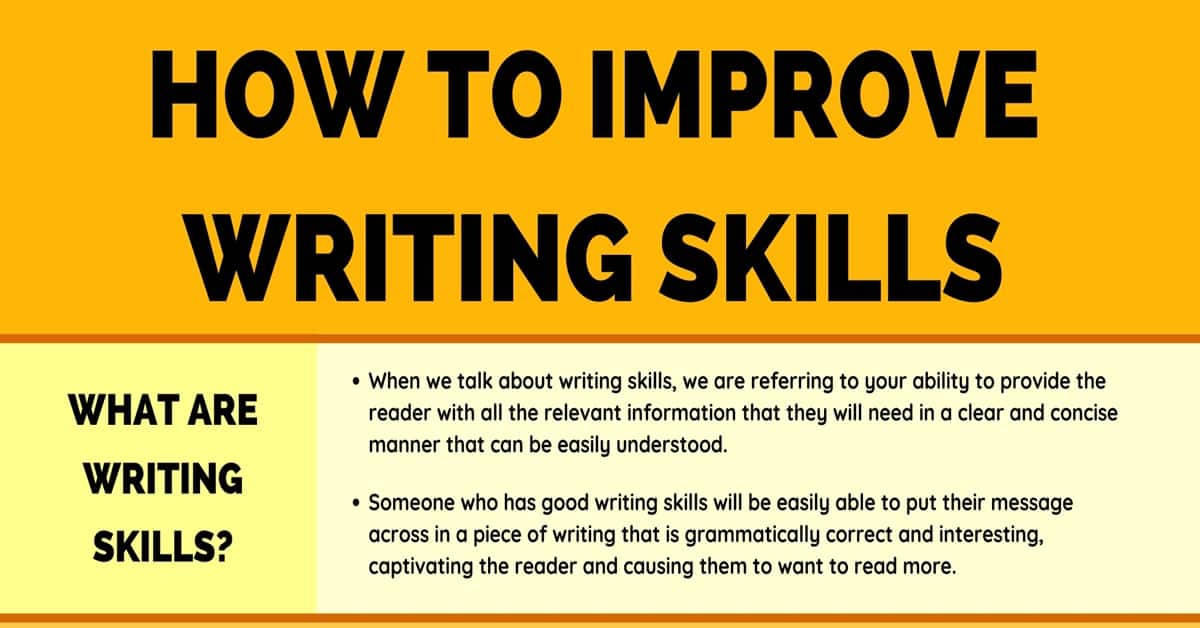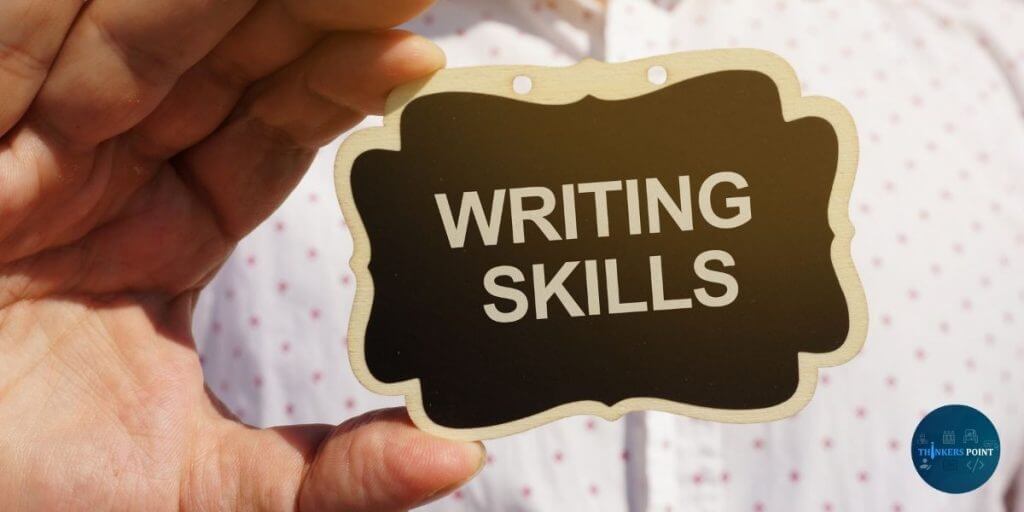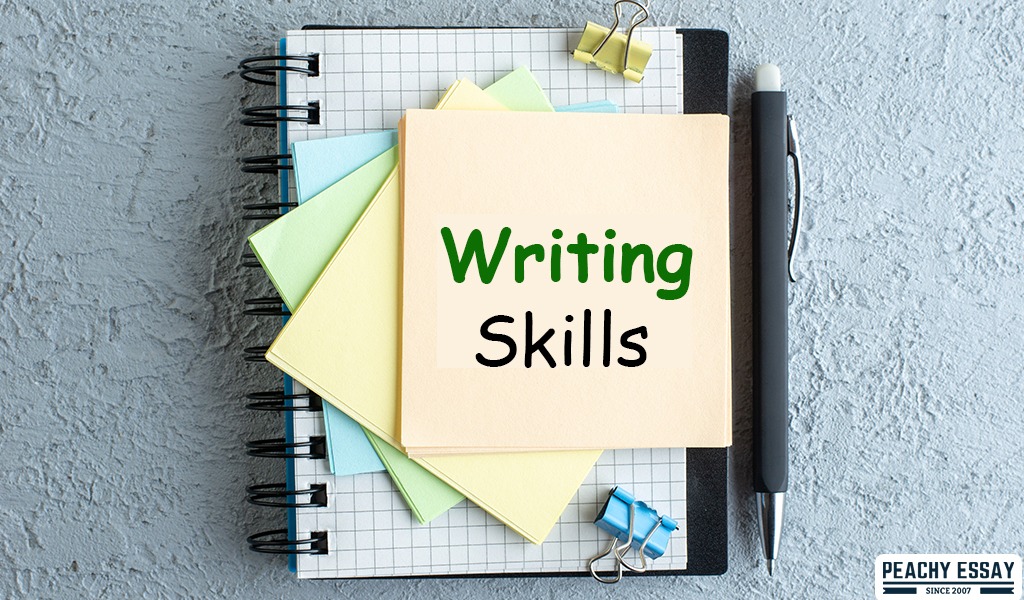Writing is a cornerstone of communication. Whether it’s crafting an email, writing a report, or expressing thoughts in a journal, writing touches many aspects of our lives. Yet, for many people, writing feels like an uphill battle. If you’ve ever wondered, “Why do I have poor writing skills?” you’re not alone.
What Does “Poor Writing Skills” Mean?
Poor writing skills encompass a range of difficulties that prevent effective communication through writing. These challenges may include frequent grammar mistakes, inability to structure ideas, overuse of filler words, or difficulty creating coherent and engaging content.
For example:
- A professional email might lack clarity, leading to misunderstandings.
- Essays or reports may feel disjointed, with no logical flow.
- Creative writing might fall flat due to weak descriptive skills or repetitive vocabulary.
Understanding what constitutes poor writing helps identify areas for improvement. Writing isn’t just about following rules—it’s about conveying ideas clearly, logically, and persuasively.
Signs You Might Have Poor Writing Skills
Recognizing the signs of poor writing is the first step toward improvement. Some indicators include:
- Frequent Feedback on Mistakes: Colleagues or teachers often point out grammatical errors, unclear ideas, or awkward phrasing.
- Difficulty Starting or Finishing Writing Tasks: Struggling to begin writing or feeling overwhelmed when organizing thoughts.
- Negative Self-Perception: Feeling frustrated, inadequate, or reluctant to write.
- Inconsistency in Tone or Style: Switching tones unintentionally or failing to match the audience’s expectations.
- Overreliance on Editing Tools: Depending heavily on grammar-checking software to clean up basic errors.
Each of these signs reflects specific aspects of poor writing, offering clues about what to address.

Root Causes of Poor Writing Skills
Lack of Practice
Writing is like any other skill—it improves with consistent practice. Without regular opportunities to write, people struggle to develop fluency and confidence in their abilities. Just as a runner won’t excel without training, writers must actively engage with writing to refine their skills.
For instance:
- Students who write only during assignments may lack the practice needed to write fluently in other contexts.
- Professionals who avoid writing tasks (e.g., delegating reports or emails) miss chances to build proficiency.
Practical Tip: Begin with manageable daily writing exercises, such as journaling for 10 minutes or drafting short reflections on articles or books.
Limited Reading Habits
Reading is fundamental to good writing. When people don’t read regularly, they miss out on exposure to diverse styles, vocabulary, and ways of organizing thoughts. Reading also fosters creativity and critical thinking, key components of effective writing.
- Case Study: A 2019 study by the National Endowment for the Arts showed that individuals who read more frequently perform better on writing assessments.
- Fiction enhances creativity, while nonfiction builds analytical and explanatory skills.
Pro Tip: Diversify your reading materials. Try mixing genres like novels, essays, journalism, and poetry to gain a broader perspective.
Weak Grammar Foundation
Grammar serves as the backbone of writing. Without a solid understanding of grammar, even the best ideas can lose their impact. Problems like run-on sentences, incorrect punctuation, and subject-verb agreement errors make writing hard to understand.
Example: “Their going too the store” vs. “They’re going to the store.”
A simple grammar error like this can completely change the sentence’s meaning.
Building a grammar foundation takes time. Start with user-friendly guides like “The Elements of Style” by Strunk and White or explore free resources like Purdue OWL (Online Writing Lab).
Limited Vocabulary
A restricted vocabulary limits expression. Writers with a narrow range of words often rely on repetitive phrasing, which can make their work monotonous or unclear. For example:
- Instead of saying “The presentation was good,” a more descriptive option could be, “The presentation was engaging and informative.”
How to Expand Vocabulary:
- Learn one new word daily and use it in a sentence.
- Read challenging material that introduces advanced vocabulary.
- Use apps like Vocabulary.com or flashcard tools.
Overuse of Technology
While tools like autocorrect and grammar-checkers are helpful, they can become a crutch. Overreliance on these tools prevents people from learning grammar and spelling independently.
Example: A 2020 study by the University of London found that students who relied heavily on autocorrect scored lower on grammar tests compared to those who practiced manual editing.
Solution: Use these tools sparingly and challenge yourself to identify errors without them.
Educational Gaps
Inconsistent or inadequate instruction during formative years can leave lasting gaps in writing skills. Traditional curricula often emphasize rote learning over creative and analytical writing, leaving students ill-prepared for real-world communication.
For example:
- Schools might prioritize grammar rules without teaching how to structure essays or arguments effectively.
- Feedback on writing assignments may focus on surface-level corrections rather than deeper issues like coherence or audience engagement.
Seeking mentorship or enrolling in writing workshops can help bridge these gaps.
Psychological Factors
Fear of judgment or writing anxiety often paralyzes aspiring writers. This is especially common among people who’ve faced harsh criticism or struggled with self-esteem in other areas of life.
- Fact: Writing anxiety affects nearly 40% of college students, according to a study published in the Journal of Educational Psychology.
- Symptoms include procrastination, avoidance, or rushing through assignments.
Strategies to Overcome Anxiety:
- Break projects into smaller, less intimidating steps.
- Remind yourself that rough drafts are a starting point—not the final product.
- Focus on progress, not perfection.
Lack of Planning
Writing without planning often results in disorganized, unclear, or incomplete work. Many people skip prewriting techniques like brainstorming or outlining, which are essential for creating cohesive content.
Simple Planning Framework:
- Define your purpose: Why are you writing this piece?
- Identify your audience: What do they expect?
- Create an outline with key points to ensure a logical flow.

Improving Writing Skills
Understanding the causes of poor writing is only half the battle—taking actionable steps to improve is where transformation happens. Whether you’re a student, professional, or casual writer, implementing these strategies can elevate your writing skills.
Developing Better Habits
Reading Regularly
Reading exposes you to diverse writing styles, tones, and structures. It’s an effortless way to internalize effective writing techniques while expanding your vocabulary. For best results, read actively by paying attention to how ideas are presented and transitions are made between paragraphs.
Recommended Genres to Explore:
- Fiction: Enhances creativity and storytelling (e.g., “To Kill a Mockingbird” by Harper Lee).
- Nonfiction: Builds critical thinking and factual clarity (e.g., Malcolm Gladwell’s books).
- Journalism: Develops concise and impactful writing (e.g., The New York Times).
Active Reading Techniques:
- Highlight key phrases or transitions.
- Take notes on how arguments are structured.
- Reflect on what worked well and what didn’t.
Writing Daily
Consistency is key when it comes to improving writing. Writing daily helps you overcome the fear of a blank page while honing your ability to articulate thoughts. Start small and gradually increase complexity.
Daily Writing Prompts:
- “Describe your favorite childhood memory in vivid detail.”
- “Write a short letter to your future self.”
- “Summarize an article you read in three sentences.”
Set a timer for 15 minutes each day and write without overthinking. This habit not only builds fluency but also boosts confidence over time.
Enhancing Grammar and Syntax
Grammar and syntax are the building blocks of clear communication. Improving them ensures your writing is polished and professional.
Step-by-Step Grammar Improvement:
- Use Free Resources: Websites like Grammarly, Purdue OWL, or Khan Academy provide excellent, accessible lessons.
- Invest in Books: “Grammar Girl’s Quick and Dirty Tips for Better Writing” is a highly recommended read.
- Practice Quizzes: Apps like Quizlet or Duolingo often include grammar exercises tailored to specific needs.
Pro Tip: Write short sentences and gradually build complexity as you gain confidence in grammar usage.
Expanding Your Vocabulary
A strong vocabulary adds depth and precision to your writing, allowing you to express ideas more effectively.
Strategies to Expand Vocabulary:
- Learn Synonyms and Antonyms: For instance, replace “good” with “excellent,” “remarkable,” or “commendable.”
- Use a Thesaurus Wisely: Avoid overusing complex words that might confuse your audience.
- Try Vocabulary Apps: Platforms like Vocabulary.com, Quizlet, or Memrise provide personalized learning experiences.
Challenge: Write a 300-word story using 10 new words you’ve learned.
Planning and Structuring Your Writing
Good writing is always well-organized. Prewriting activities like brainstorming, outlining, and drafting ensure clarity and logical flow.
How to Structure Your Writing:
- Start with an Outline: Identify the main points and supporting details before you begin.
- Use Headings and Subheadings: Break your content into smaller, manageable sections.
- Follow a Logical Order: Ensure that ideas flow naturally from one to the next.
Example Table for Structuring an Essay:
| Section | Purpose | Example Content |
|---|---|---|
| Introduction | Grab attention and state purpose | “Have you ever struggled with writing?” |
| Body Paragraph 1 | Present key idea and supporting details | Discuss lack of practice. |
| Body Paragraph 2 | Build on the first idea | Explore the role of reading habits. |
| Conclusion | Summarize and call to action | “Here’s how you can start improving today.” |
Seeking Feedback
Feedback is essential for improvement. Constructive criticism helps pinpoint weaknesses and refine strengths.
Sources of Feedback:
- Writing Groups: Join online or local communities like Meetup or Reddit’s r/writing.
- Professional Review: Hire a tutor or writing coach for detailed guidance.
- Peer Reviews: Share your work with trusted friends or colleagues.
Tip: When receiving feedback, ask specific questions like, “Did the introduction grab your attention?” or “Were the transitions smooth?”
Overcoming Psychological Barriers
Psychological hurdles like writing anxiety or lack of confidence can be significant obstacles. Addressing these challenges can make writing more enjoyable and less daunting.
Ways to Build Confidence:
- Start small: Write informal pieces like emails or social media posts.
- Celebrate progress: Recognize and reward improvement, no matter how minor.
- Practice self-compassion: Understand that everyone starts somewhere.
Mindfulness Exercise: Before writing, take 5 minutes to meditate or breathe deeply to clear your mind.

Tools and Resources to Improve Writing
Improving your writing skills doesn’t have to be a solo journey. In today’s digital age, countless tools, books, and communities are available to help you refine your craft. Leveraging these resources can accelerate your growth and make the process more enjoyable.
Online Tools
Online writing tools provide instant feedback and help catch errors, making them invaluable for honing your writing skills.
Popular Writing Tools:
- Grammarly:
- Identifies grammar, spelling, and punctuation errors.
- Offers suggestions to improve tone and style.
- Free version available; premium adds advanced features like clarity checks.
- ProWritingAid:
- In-depth style and grammar checker.
- Highlights issues like overused words, readability, and pacing.
- Hemingway Editor:
- Focuses on readability.
- Highlights complex sentences and adverbs to simplify your writing.
- Scrivener:
- Ideal for long-form projects like novels or research papers.
- Helps organize notes, outlines, and drafts in one place.
- WordCounter:
- Tracks word count, reading time, and keyword density.
- Useful for SEO-focused content.
Pro Tip: While tools are helpful, use them as a guide rather than a crutch to ensure you actively learn from corrections.
Writing Guides and Books
Books remain a timeless resource for learning to write effectively. Some provide technical advice, while others inspire creativity and storytelling.
Highly Recommended Books:
- “On Writing: A Memoir of the Craft” by Stephen King:
- A blend of personal anecdotes and practical writing tips from a master storyteller.
- “The Elements of Style” by Strunk and White:
- A concise guide to grammar and composition basics.
- “Bird by Bird: Some Instructions on Writing and Life” by Anne Lamott:
- Offers a humorous yet profound take on the challenges of writing.
- “Writing Down the Bones” by Natalie Goldberg:
- Focuses on unleashing creativity through the practice of writing.
- “Everybody Writes” by Ann Handley:
- Perfect for digital writers looking to enhance web content.
Writing Communities
Joining a writing community can provide motivation, accountability, and constructive feedback. Communities connect you with like-minded individuals who share your goals and challenges.
Top Communities for Writers:
- Reddit (r/writing, r/writers):
- Forums for advice, prompts, and discussions on writing challenges.
- Wattpad:
- A platform for sharing creative works and gaining feedback from readers.
- Scribophile:
- A dedicated critique community where members review each other’s work.
- National Novel Writing Month (NaNoWriMo):
- Encourages writers to complete a novel in 30 days.
- Local Writing Groups:
- Use Meetup or Facebook to find nearby writing workshops or clubs.
Benefits of Writing Communities:
- Access to peer feedback and constructive criticism.
- Opportunities to collaborate on projects or challenges.
- Encouragement and camaraderie during writing slumps.
Leveraging Courses and Workshops
Online courses and workshops offer structured learning and interaction with seasoned instructors.
Top Platforms for Writing Courses:
- Coursera: Offers university-level writing courses (e.g., “Creative Writing Specialization” by Wesleyan University).
- Udemy: Features affordable, on-demand courses like “Mastering Writing Skills.”
- MasterClass: Learn from top writers like Neil Gaiman and Margaret Atwood.
- Skillshare: Includes practical classes like “Writing for Online Engagement.”
Taking a course can help you focus on specific goals, like improving creative writing, business communication, or academic essays.
Setting Up Your Personal Writing Space
Having a dedicated writing environment can significantly impact productivity and creativity. A cluttered or noisy space often leads to distractions, reducing focus and quality.
Tips for Setting Up an Ideal Writing Space:
- Lighting: Use natural light or soft desk lamps to avoid eye strain.
- Comfortable Seating: Invest in an ergonomic chair to prevent discomfort during long sessions.
- Minimize Distractions: Keep your desk free of unnecessary items and silence notifications.
- Inspiration Board: Add quotes, goals, or pictures to keep you motivated.